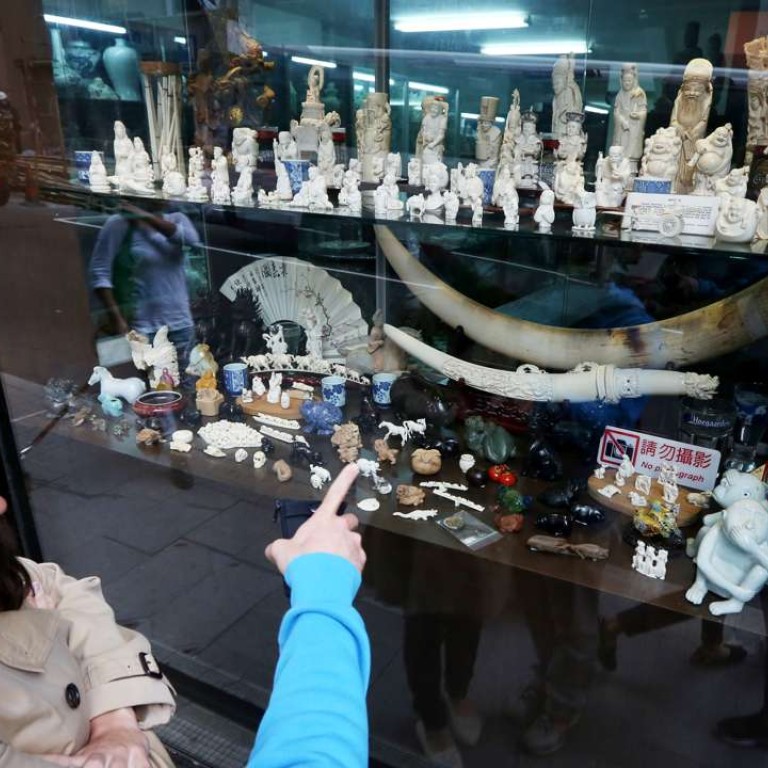
Hong Kong ivory traders mull legal challenge against plan to ban sales in five years
Licensed traders to consult lawyers on feasibility of a legal challenge
So Chi-keung, president of the Hong Kong and Kowloon Ivory Manufacturers Association, which represents most of the city’s licensed traders, said all stocks and raw materials in their possession were legal and registered and that it was “unjust” to bar them from selling their own private property.
“If you say you won’t give us the right to our own lawful assets, it means we lose the right to sell and the right to value them. Our goods will become worthless,” he told a local radio programme.
A three-step plan to phase out the local ivory trade by the end of 2021 was approved by the Executive Council last week and will be tabled in the legislature in the first half of next year.
At least two groups of traders, including So’s, have written to the Agriculture, Fisheries and Conservation Department asking for an immediate meeting with director Dr Leung Siu-fai.
They claim to have floated multiple suggestions during consultations with the department in the last one or two years – all of which were “ignored” – and hoped a consensus could be reached before the Environment Bureau took the legislative proposal forward.
“[As to whether] we will go a step further with a judicial review or litigation, we will be meeting with our lawyers in the next few days, and if we have news on that we will notify the media of our next step.”
So said the industry was already in decline and the government should allow them to gradually sell off their stock, rather than slap a five-year deadline without any guidance.
Some 70 tonnes of legal ivory of the original 700 tonnes registered when a 1989 ban on international trade came into effect remain in the market. But So said most were large, ornate and expensive carvings that were not easy to sell.
He claimed the industry had been facing a harder time selling since 2006, when the government suddenly began allowing stocks of new European “pre-convention” ivory into the market, mostly for re-export to the mainland.
“What happened was our trade became vilified. People claimed we actually had more ivory despite years of trying to sell it ... or were mixing illegal stock with legal stock.”
Environment minister Wong Kam-sing said the three-step plan would incrementally phase out demand for ivory over five years and that it was the best way to address the issue.

